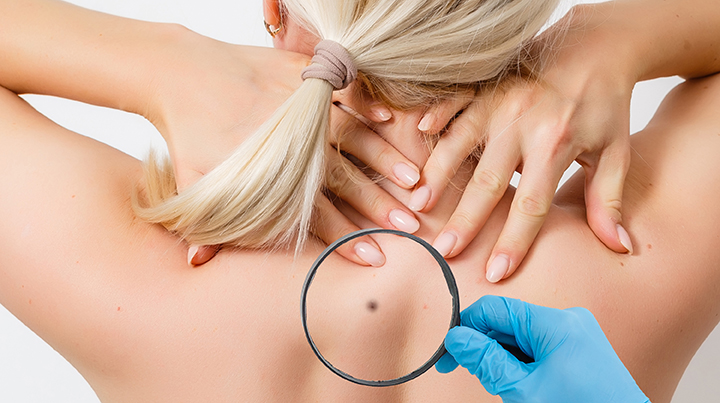- Chris Comans
- 1 Comment
Living in Perth, we are blessed with stunning beaches, a vibrant outdoor lifestyle, and plenty of sun. However, this also means that we need to be vigilant when it comes to our skin health. Skin cancer is a significant concern in Australia, where rates are among the highest in the world.
At Skin ChX in Subiaco, we believe in the importance of early detection and awareness as the key to effectively combat skin cancer. Here’s a closer look at the early signs and symptoms of skin cancer that all Perth locals should be aware of.
Understanding Skin Cancer
Skin cancer occurs when skin cells grow uncontrollably. There are three main types of skin cancer: basal cell carcinoma (BCC), squamous cell carcinoma (SCC), and melanoma. Each type presents its own set of challenges, but early detection significantly improves treatment outcomes. Understanding the signs to look out for can be the difference between a successful treatment and more complex interventions.
The Importance of Regular Skin Checks
As a resident of Perth, it is crucial to schedule regular skin checks with a qualified skin cancer screening practitioner. These annual or biannual appointments can help identify any suspicious changes on your skin early on. While self-examinations are beneficial, professional evaluations can catch issues that may go unnoticed.
Key Signs to Look For
1. New Growths or Sores that Don’t Heal
One of the most concerning signs of skin cancer is the appearance of a new growth or sore that does not heal. If you notice a spot, bump, or ulceration on your skin that persists for more than a few weeks, it’s essential to consult a skin cancer screening practitioner. This is particularly true for lesions that bleed or crust over but do not improve over time.
2. Changes in Existing Moles
Keep an eye on any moles or spots you already have. The ABCDE rule is a helpful guideline for identifying potential melanoma:
- Asymmetry: One half does not match the other.
- Border: Irregular, jagged, or blurred edges.
- Color: Varied shades of brown, black, or tan, and sometimes even red, white, or blue.
- Diameter: Larger than 6mm (the size of a pencil eraser).
- Evolving: Changes in size, shape, or colour over time.
Importantly, it’s essential to remember that around 70% of melanomas appear as a new spot on your skin, often referred to as the “ugly duckling” or standout lesion. This term highlights any new, unusual, or different spots when compared to your existing moles. Watch for anything new that seems out of place; it could make a significant difference in early detection.
3. Itching, Tenderness, or Pain
If you experience unexplained itching, tenderness, or pain around a mole or a group of spots, don’t ignore these symptoms. While many skin conditions can cause discomfort, persistent pain could be an early indication of skin cancer.
4. Scaly or Rough Patches
Skin cancer can also present as rough, scaly patches that may flake or become irritated. These spots may be reddish or brownish in colour and can be mistaken for eczema or psoriasis. If you notice a patch that does not improve with regular skincare, consider discussing it with a skin cancer screening practitioner.
5. Changes in Nail Appearance
Did you know that skin cancer can also manifest in the nails? Look out for new dark streaks under the nails or changes in nail shape or colour. These changes can indicate melanoma of the nail, which is less common but still a serious concern.
6. Persistent Redness or Swelling
Sometimes, skin cancer can present as a persistent redness or swelling around a mole or an area of skin. If you notice inflammation that lasts for several weeks, it’s time to seek professional advice.
Staying Proactive About Skin Health
Prevention is always better than cure, and protecting your skin from UV exposure is crucial. Wearing sunscreen, seeking shade, and wearing protective clothing can significantly reduce your risk of developing skin cancer.
Additionally, educating yourself and your loved ones about the signs of skin cancer fosters a proactive approach to skin health. Encourage family and friends to perform regular self-examinations and seek professional screenings, especially if they have risk factors such as a family history of skin cancer.
Conclusion
At Skin ChX in Subiaco, we are committed to assisting the Perth community in staying informed about skin health. Early detection can save lives, so remain vigilant and trust your instincts.
If you notice any concerning changes in your skin, don’t hesitate to book an appointment with a skin cancer screening practitioner. Your skin is a precious asset—take care of it, and enjoy the sunny Perth lifestyle responsibly!

Why Advanced Onsite Skin Cancer Screening Matters: How Skin ChX Is Protecting WA Workplaces - SkinChx